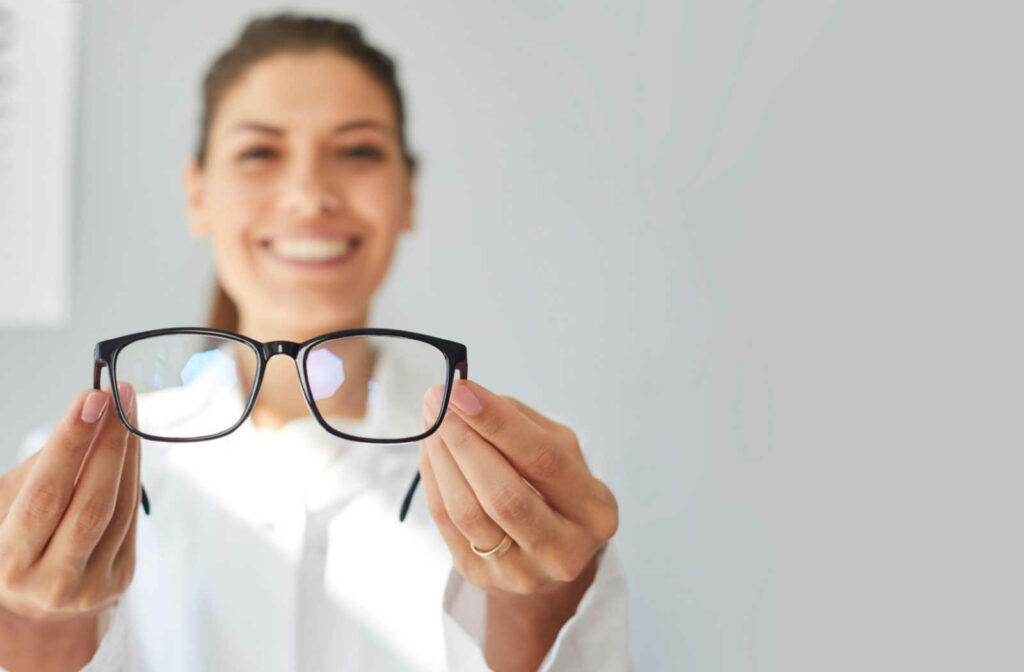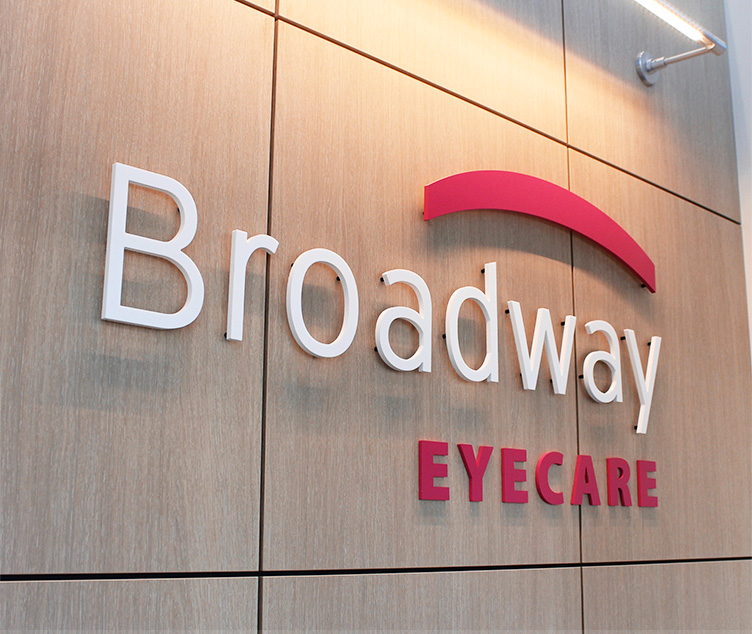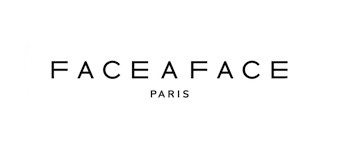Have you recently noticed that your vision seems clearer without your glasses? It might feel a bit puzzling, especially if you’re used to relying on your glasses daily. While it’s easy to hope for a miraculous improvement in your eyesight, the reasons behind this experience are often temporary and not always straightforward.
Suddenly seeing better without your glasses can happen due to factors like improved lighting, reduced eye strain, or temporary changes in your eyes, such as blood sugar fluctuations or age-related shifts like presbyopia. Even if it seems like good news, it’s important to understand what’s happening with your vision and consult a professional if needed.
At Broadway Eyecare, we’re here to help you understand your eye health in a clear, caring, and approachable way. Below, we’ll walk you through some possible reasons why your vision might feel sharper without your glasses and explain why a comprehensive eye exam is the best way to get to the bottom of it.
Temporary Conditions That Could Improve Vision
There are several factors in your daily life or environment that might give you the impression that your vision is better than usual. These factors aren’t permanent fixes and typically point to changes in lighting, strain, or focus.
Improved Lighting Conditions
Lighting plays an essential role in how well you see. Bright, diffused, or natural light enhances contrast and clarity, which can trick your brain into thinking your prescription is no longer needed. You might find that reading or looking at screens in brighter environments feels easier, even without your glasses.
For example, if you usually wear your glasses while reading in low light but suddenly find yourself in a well-lit room or sitting by a sunny window, you may find some small print easier to read. However, this is only a temporary improvement. The underlying reasons you need glasses—such as nearsightedness or farsightedness—won’t be resolved with better lighting.
Relief From Eye Strain
If you’ve experienced eyestrain from extended screen time or focusing on small details for hours, you might notice your vision momentarily improves once you take a break. When your eyes are tired, your focus can be less sharp, making you feel more dependent on your glasses. Taking time to rest your eyes, blink more frequently, or step away from screens can reduce strain and make your vision feel sharper in the short term.
This doesn’t mean your vision has fundamentally changed. Instead, it’s likely that your eye muscles—the ones responsible for focusing—have had a chance to relax. While this might make vision improvement seem possible, it’s not a replacement for wearing glasses.
Age-Related Changes in Vision
Certain age-related factors can also affect how clear your vision feels. Whether you’re noticing subtle improvements or changes to your vision, these factors might be worth discussing with an eye care professional.
Presbyopia & Near Vision
If you’re around your early 40s (or older), you may have heard of presbyopia. This condition makes it harder to focus on nearby objects but has little effect on your distance vision. Presbyopia develops naturally as the lenses in your eyes lose flexibility over time.
Some individuals with nearsightedness might notice their distance vision feels less blurry or more manageable without glasses during the onset of presbyopia. However, this doesn’t mean your underlying prescription is correcting itself. It’s simply a slight shift in vision balance that can make specific tasks—like reading distant signs—feel easier without correction.
Diabetes & Blood Sugar Fluctuations
Fluctuating blood sugar levels—whether you have diabetes or not—can temporarily affect the shape of your eye’s lens, causing unexpected vision changes. For some people, this can lead to moments of improved sight or even make glasses feel less necessary. However, these shifts in vision can also signal underlying health concerns.
If you’re experiencing sudden improvements or inconsistencies in your vision without glasses, it’s essential to book an appointment to assess whether blood sugar may be playing a role.
Long-Term Vision Changes
While most cases of temporarily improved vision are environmental or related to strain, there are instances where changes in your prescription might genuinely account for your new clarity.
Shifts in Vision Prescription
Your eyes don’t always stay the same over time. Whether due to age, health, or gradual adaptation, your prescription may evolve. Instances where you need a lower strength for correction could make it seem like your vision is improving. However, glasses are typically prescribed to help you achieve the clearest, most comfortable sight—not just to correct what’s visibly blurry.

If you feel your glasses are no longer helping, or if they’re making tasks harder, a check-up at Broadway Eye Care can determine whether your prescription has changed. A professional assessment makes sure that your glasses are properly aligned with your vision needs, keeping both comfort and clarity in focus.
Cataracts & Natural Lens Changes
Cataracts are often associated with cloudy or blurred vision as they develop, but in rare cases, they can temporarily improve it. This phenomenon—termed “second sight”—occurs when changes within the natural lens counteract nearsightedness, creating short-term clarity.
While it might seem like an unexpected benefit, the underlying issues causing these changes will eventually impact your vision. Cataracts don’t permanently improve your prescription and require monitoring to keep your vision healthy.
When to Seek Professional Eye Care
Any sudden or unexpected changes in vision—even if they feel like improvements—should be checked by an eye care professional. Sometimes, clear sight without glasses can mask underlying concerns that should be addressed sooner rather than later.
At Broadway Eyecare, our team can provide thorough eye exams to assess your vision, investigate possible health issues, and ensure your glasses or contact lenses are supporting your needs. Our focus is on helping you achieve lasting clarity, whether it’s through updated correction, treatment, or expert guidance.
Taking Care of Your Vision
Your eyesight is complex, and even moments of clearer vision without your glasses might not tell the whole story. Temporary adjustments related to lighting, strain, or age are normal, but they aren’t indicators of permanent improvements. Regular eye exams should stay a part of your routine to ensure you catch any changes early.If you’ve noticed a sudden improvement in your vision—or anything else unusual—our team at Broadway Eyecare is here to support you with understanding and care.
Book your next exam today, and take the first step towards proactive eye health. Remember, understanding your eyes is key to protecting your sight for years to come.









